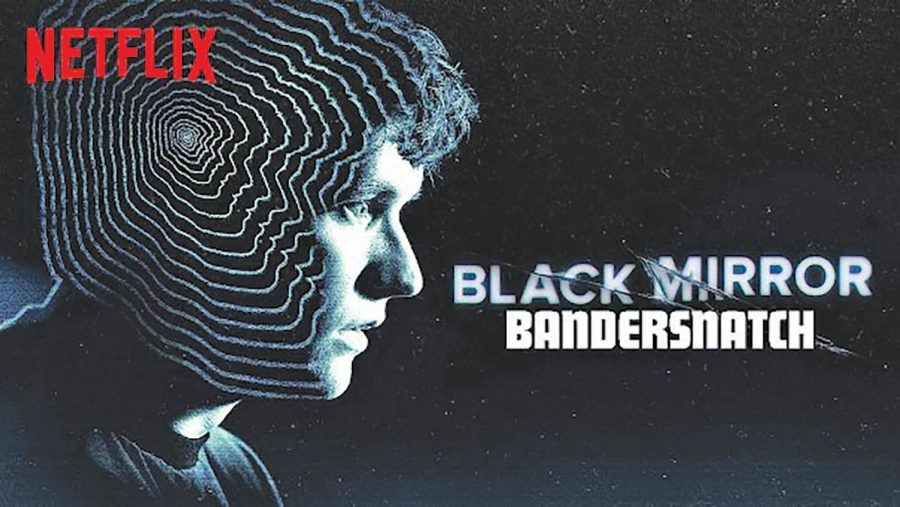‘Black Mirror’ tantalizes viewers in latest mind-bending masterpiece
Netflix has been experimenting with the interactive feature since early 2017.
As anyone accustomed to watching the Netflix original program “Black Mirror” knows, the show is not in the habit of providing viewers with happy endings. From the very first episode, “Black Mirror” has been likened to the old sci-fi show “The Twilight Zone,” thanks to its unusual premises, twist endings and the general sense of dread it produces in anyone who watches it.
“Black Mirror” offers disquieting ‘What if?’ stories with moral underpinnings that serve to make the audience question the technology they use and the possible ethical dilemmas that could arise with the advancement of that technology.
The most recent installment of the series, “Bandersnatch,” is true to this general form, but breaks with all other conventions of television and film almost immediately. The movie (if it can even be called that in the traditional sense of the term), is interactive, forcing the viewer to make decisions for the main character, Stefan Butler, in the style of a choose-your-own-adventure book or old-school video game.
Stefan is a young man in 1980s England during the rise of the PC video game industry. Obsessed with a fictional choose-your-own-adventure book, titled Bandersnatch, Stefan begins working on a game version of the book for a local gaming corporation. As the episode progresses, the choices offered to the viewer escalate from what cereal Stefan has for breakfast to momentous decisions with dire, even fatal consequences.
“Bandersnatch” is filled with several layers of meta-narrative. Movie and game posters reference the titles of past “Black Mirror” episodes. The toy Stefan played with as a child, which plays a central role in the overarching plot, is a stuffed rabbit, reflecting multiple ‘rabbit holes’ the viewer can go down. The author of the fictional Bandersnatch book has a disturbing story himself – he went insane after becoming convinced of the meaninglessness of human choice and the illusion of free will – which is, in ways, similar to Stefan’s own path.
The discomfort and malaise that are the hallmarks of every “Black Mirror” episode are present in “Bandersnatch” to an unprecedented degree. The true genius of this episode is in its treatment of free will – making even the viewer skeptical. The psychoses that one would expect to follow the disillusionment with free will and rational choice plague Stefan to a troubling degree, as the viewer makes more and more choices for him. In the end, “Black Mirror” has achieved something no other film, book or video game ever has: it turns you, the viewer, into the bad guy.
As with any other work, “Bandersnatch” is not perfect. Some of the alternate endings are very similar, which can get tiring for the viewer to have to return to scenes already seen once, twice or more times. If you’re not paying close attention, it is easy to fall into a seemingly endless plot loop. “Black Mirror’s” ambition for the episode makes it impossible to consume “Bandersnatch” passively, which, while definitely intentional, is a bit exhausting if you’re not prepared for it.
Overall, “Bandersnatch” is an incredible work. “Black Mirror” has an unequaled ability to disquiet the viewer and force them to think critically about the unbridled progress of technology and the ethical problems associated with it. The moral questions it poses are not likely to go away anytime soon.












Moses Brodin • Feb 20, 2019 at 10:14 pm
I left my work in the field of management in education, but still read your posts with growing interest.
Beause everything you write is highly intellectual, full of reasonable recommendations, empathy and humour.
And this, the latest post, is insightful, challenging and goes far beyond your professional circle, – it is of great value for the cultural background for any profession and community.
I wish your views to be understood and shared by many people
Ragerds:Moses Brodin